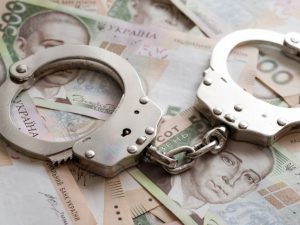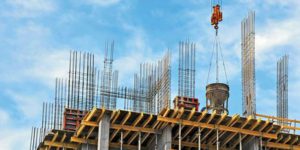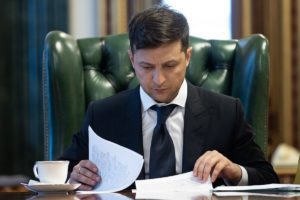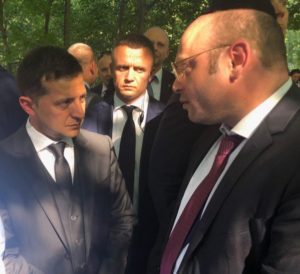
The main priorities for the Ukrainian government are establishment of the rule of law and combating corruption, Head of the EU Delegation to Ukraine Matti Maasikas said. During a “Reform Forum: On the Way to Vilnius”, he said many challenges are ahead, but the rule of law, its establishment and combating corruption will remain priority ones.
The diplomat stressed that after lustration of the bank sector further efforts to restore confidence in the financial sector are needed.
“Many reforms are still ongoing. Land reform, labor market reform, education reform. If implemented, they will make Ukraine a much more efficient country,” he said.
Among the achievements of the reforms in Ukraine, Maasikas mentioned that the macroeconomic situation has stabilized, the banking sector has been largely purified, the Naftogaz Ukrainy has been unbundled, and the government is improving access to various services for citizens.
The EU Ambassador stated that the EU was ready to support the government and people of Ukraine, and is ready to accompany the process of implementation of the Association Agreement and the agreement on the Deep and Comprehensive Free Trade Area between Ukraine and the EU.

President of Ukraine Volodymyr Zelensky has instructed to eradicate total corruption in the field of state architectural and construction control and urban planning by the end of 2019, a president’s press service reported. Zelensky set the appropriate task to Minister of Development of Communities and Territories Olena Babak during a meeting with the leadership of the Verkhovna Rada and the Cabinet of Ministers in the President’s Office.
The head of state noted the need to switch rendering of the administrative services in construction to an electronic format and introduce automatic registration in the register of approval documents.
As the President’s Office reported, Zelensky commissioned Minister of Justice of Ukraine Denys Maliuska to change the software of real estate and business registers to stop unauthorized access. Besides, by the end of June 2020, Maliuska must ensure the formation of the legislative framework for the operation of an electronic notarial system.

Christoph Leitl, the President of the Association of European Chambers of Commerce and Industry, which represents 20 million companies, spoke in an interview with the Interfax-Ukraine agency about the assessment of the prospects of cooperation between Ukrainian companies and European partners, Ukraine’s prospects of entering the European markets and the consequences of protectionism without increasing competitiveness. From 2000 to 2018, Christoph Leitl was also the head of the Austrian Federal Economic Chamber, and currently he is the Honorary President of the Chamber.
– What are your impressions of the meetings in Ukraine?
Ukraine is an important member of EUROCHAMBRES and Ukraine plays an important role in the European economic community.
Within the framework of our visit, Gabriele Haselsberger, the Austrian Trade Commissioner, organized a meeting of Austrian companies and their Ukrainian partners. A large number of companies gathered at this meeting, we also had contacts with representatives of the media e.g. with Ukrainian television. We had a meeting with the Mayor of Kyiv Vitaliy Klitschko, Deputy Prime Minister for European Integration Dmytro Kuleba and the Deputy Minister of Economy.
These contacts were very interesting, they testified to a new stage of cooperation. If we manage to implement what the new government announced, Ukraine will become more attractive to investors. This is interesting for all of us, not only for Ukraine, but also for the entire European Union.
– How do you assess the current potential of Ukraine? Which sectors of the Ukrainian economy are attractive for Austrian partners?
I understand that Ukraine is one of the most important agricultural hubs and occupies a leading position, in particular, in the IT-sector and metallurgy. This is very interesting, because we can talk not only about agriculture, which is certainly a very important sector for Ukraine. There are a lot of prospects in the agricultural sector, but it requires modernization. Ukraine today occupies a leading position in the agricultural sector at the global level, primarily due to the large amount of land, favorable climate.
– If we talk about the IT-industry, we have up to 300.000 IT-specialists in our country by some estimates. What does it mean for Ukraine and Europe?
These young specialists and Ukraine have a great future, because IT-specialists and their work is in demand everywhere. These 300.000 specialists can be the basis for Ukraine’s young generation to stay in the country and create here. Brain drain is a huge danger for Ukraine. We have already seen how it happens: Ukrainians move to Poland, Poles to Great Britain, and Great Britain leaves the EU (laughs).
This is not the right road. People should have a perspective in their own country. We must also build prospects for young people in Africa and Asia. If they have no prospects, what will they do? They will move towards Europe. No one will be able to hold back 20-30 million people, no walls on the borders and no bans.
But if we return to the prospects of Ukraine, I can say that it is not only IT, it is also infrastructure, energy efficiency, environmental protection, including the solution of the problem of waste, which is very important today, in particular, for Kyiv and other Ukrainian cities.
We are ready to share our experience in solving these and other problems. For example, Austria has a dual education system. This means combining school training with professional training at the enterprise: one day a week at school and four days at the enterprise, within three years, and at the end of the training specialists get a certificate that they are well-trained employees. We need good professionals because high quality is the most important issue in global competition. High quality of education, production and services makes us successful on the international market.
– What obstacles do you think Ukraine faces on the way of development?
It is not easy to evaluate another country, but I can give an example of investors from Austria, so that the Ukrainians could more objectively evaluate their way.

Austria, for example, is one of the top ten investors in Ukraine with more than 1 billion euros of investment. We invested in Ukraine from the very beginning, when we thought that Ukraine would be on the rise, but very soon political disputes and problems began. Those who had already invested in Ukraine remained, for example, Raiffeisen, but new investors did not come. They tell me: “Let’s see where the country will go, whether the country will choose the rule of law, whether it will say “no” to corruption, whether it will create favorable conditions for business in taxation and education. New investors will ask how well trained the staff in Ukraine is to maintain equipment or provide services. If Ukraine solves these problems, it has a great chance in the future. Now is the time to do concrete things.
– Ukraine is going through a difficult time, and there is still a military conflict in the east of the country. How does the presence of military conflict in our country affect business relations? Can business contribute to ending this conflict?
The economy can unite people, build trust and contribute to stability and peace. But the economy needs a stable political situation, so we would like this conflict to end. But we are aware of the fact that it is impossible to end it in one day. The exchange of prisoners is a very good symbol. A symbol of readiness to make a step towards each other. Potential investors are following the processes very closely. If dialogue continues, business can contribute, connect people and contribute to politics. In the long run, I see a free trade association from Lisbon to Vladivostok, including, of course, Ukraine. The economy can bring people closer together, and I am sure that politics will follow.
– Ukraine has a new president, a new government, a new parliament. Does the change of power hold back economic processes and investments?
We also have a new commission and a new parliament in the European Union.
This means a new start, now is a very good time for both you and us to accelerate investments.
I think that potential investors will come as soon as they understand that the fight against corruption, the rule of law, and business-friendly taxation has already been implemented in Ukraine, and they will understand that these are not only pre-election promises, but political reality.
– Are you a supporter of liberal economy, free trade or so-called healthy protectionism?
Protectionism leads to poverty. Wealth and prosperity are based on free trade. America has raised the flag of free trade since the Second World War, and this has given the world cooperation and prosperity. Now they have lowered the flag and are beginning to wage economic wars.
Certainly, some of the arguments of protectionism are true; first of all, that China is not as open and honest as it should be. But trade wars are not easy to win, they are detrimental not only to China and the United States, but also to other countries. This conflict has affected us all indirectly. We need free trade. After two decades of negotiations, we now have a free trade agreement with Japan, Singapore, Canada, a renewed agreement with Mexico, with Mercosur countries (the common market of South America, the economic and political agreement between Argentina, Brazil, Uruguay, Paraguay and Venezuela).
We must build a strategy with Africa, and build, as I said, a transcontinental free trade strategy. If we want to survive in global competition as Europeans, we have to cooperate. Ukraine has to be involved in this process, it is a part of Europe.
China is a challenge for the whole world, a challenge for all of us. If China is ready to work honestly, we welcome them. But we, Europeans, have to wake up and do what we have to do – unite our forces. Citizens of Ukraine are part of European culture and history. Together we can create innovations for new products and services and become more competitive.
– What other problems do you see in politics and economics? Some macroeconomists say that we are on the threshold of a new period of global economic wars and on the eve of the next financial crisis.
First of all, entrepreneurs should always be optimistic. Those who are afraid in this world have already lost. It does not mean not to see risks, there are risks in economic wars, in the financial sector, but we need a global dialogue to avoid these risks. The economy today is a network. Those politicians who think that by taking action they will win and the rest lose, will lose. The U.S. will soon feel the consequences of the war with China when China will introduce counter-tariffs. The time of single positioning has passed, whether someone likes it or not, but we all live in a multi-polar world.
I believe that the main challenge for humanity is climate! International institutions such as the G7 or G20 have to define some frameworks, including in the financial sphere and in the sphere of the impending climate crisis. We can only fight climate change at global level. No country can do this alone. In order to implement the Paris Agreement, steps and monitoring mechanisms need to be discussed at the G20 level. I would like to stress that we are not talking about world government, we are talking about global dialogue, understanding and agreements on some topics to move the world forward.
The financial system is international, and speculation is part of it. I have concerns about that. Everyone needs to pay taxes. It is not possible to justify that small players have to pay taxes and large ones have to go to tax-free islands. This is not fair competition. I am for free, but always for fair competition. Today we have to build global conditions to achieve justice.
– Some Ukrainian businesspersons do not consider the free trade agreement with the EU to be quite positive because Ukraine, in their opinion, has opened its market for European foodstuffs, beverages, and other goods, but our business cannot compete, for example, with wine producers in Italy and France without any state support from our winemakers. From their point of view, the state should provide sufficient support to some sectors of the economy to protect the market and Ukrainian producers.
What would you suggest to our government that we do not depart from the free trade agreement, but Ukrainian business could also compete with other countries?
Firstly, the wine in Ukraine is very tasty, I enjoyed it during my stay. In terms of quality it could compete with all wines of the world. And your food products are very tasty.
Secondly, in the EU it is impossible to provide permanent subsidies, and this should not be possible in other countries. Modernization of wine production is targeted at the EU, so modernization for better quality can also be subsidized in Ukraine, and it is not stated anywhere that such support is prohibited. This is normal to help modernise and help to obtain better quality, but there should be no subsidies for regular wine production. You need an organization for marketing. I see in airports around the world, not in Kiev, but in other airports I see wine from South Africa, Chile, France, Italy, not from Ukraine. This means that the sales network should be organized in a different way, more professionally in terms of supporting the national producer, perhaps under the aegis of the Ministry of Economy or a specialized state organization.
– Let’s switch to Austrian-Ukrainian relations: are there any companies now considering the possibility of entering the Ukrainian market?
As I said earlier, Austria is among the top 10 investors with more than 1 billion euros. This is Austria’s great trust in Ukraine. We have historical ties with Ukraine. We are proud of it.
In order to attract additional investors, you have to do what you said in the beginning: changes in key areas for business. The sooner you do this, the sooner potential investors will be interested in your country. There is a huge potential. Investors need to be sure that their investments are not threatened by uncertain environmental conditions.
Austrian companies already have about 250 subsidiaries here, including about 25 production companies, nobody wants to lose these investments, on the contrary, create conditions, the business will only increase investments.
– Another problem of the Ukrainian economy is its structure, Ukraine mainly exports raw materials (grain, metal), but not the finished product. How can Austrian and other international partners help to create processing enterprises for the production, including export, of high value-added products?
Ukrainians themselves should realize the need to create processing and production. Ukraine has an example before its eyes, it may be unpleasant for many, but it is a fact: Russia exported mainly raw materials, as a result of the sanctions Russia had to diversify the structure of the economy and now exports products with higher added value.
As I said, create a business-friendly environment, show investors that you have a lot of raw materials, that you want to enter the value chain, that you have the opportunity to do so and benefit from it. Ukraine should show investors its willingness to accept and protect them.
Besides, it is very important to show the international markets the opportunities of Ukraine on a regular basis. It seems to me that this is the task of the Ukrainian business communities and the Ukrainian Chamber of Commerce and Industry. Ukraine should offer opportunities for its regions and sectors of the economy to its partners through the organization of presentations, round tables, conferences, forums abroad. If Ukraine is interested in presenting itself, we, the Austrian Chamber, and the Association of European Chambers will help. This means that you should not only make declarations and strategic documents, but also take concrete steps to establish business interests of entrepreneurs.
– What are your personal plans for Ukraine?
I visit Ukraine, and I am sure that this is not my last visit.
I would like to note that I have created a fund and every year about a thousand young people from all European countries, including Ukraine, have the opportunity to gather for events coordinated by the fund. Within the framework of the Foundation in Austria, every week 30-40 young people come together to discuss the future, political and economic challenges and spend time together playing sports. Young people are tired of wars, walls, protectionism. Young people want to build a common fair future, let us help them.
Information on trade between Ukraine and Austria from the Austrian Embassy in Ukraine.
The turnover of trade between Austria and Ukraine after the 2014-2016 crisis shows growth and in 2018 was 1.17 mrd. Euro. In the first half of 2019, it increased by 18.2% compared to the first half of 2018. Austria exports to Ukraine: machinery, equipment, pharmaceuticals, paper and cardboard, seeds, electric machines, and many other products. Ukraine exports to Austria ores, sports equipment, fruit and vegetable juices, frozen vegetables, electric machines.
U.S. President Donald Trump has explained that during a telephone conversation with Ukrainian President Volodymyr Zelensky on July 25, he talked about a probe into the case of a company related to former U.S. Vice President Joe Biden’s son, Hunter Biden, in the context of Zelensky’s promise to fight against corruption in Ukraine.
“I want him to do whatever he can. This was not his fault; he wasn’t there. He’s just been here recently. But whatever he can do in terms of corruption, because the corruption is massive. Now, when Biden’s son walks away with millions of dollars from Ukraine, and he knows nothing, and they’re paying him millions of dollars, that’s corruption. When Biden’s son walks out of China with $1.5 billion in a fund. <…> I think that’s a horrible thing. I think it’s a horrible thing,” he said during a bilateral meeting with Zelensky in New York City on Wednesday, September 25.
“I know the President, and I’ve read a lot about Ukraine. I’ve read a lot about a lot of countries. He wants to stop corruption. He was elected – I think, number one – on the basis of stopping corruption, which unfortunately has plagued Ukraine. And if he could do that, he’s doing, really, the whole world a big favor. I know – and I think he’s going to be successful,” Trump emphasized.
The U.S. president also spoke about the need to fight corruption in response to Zelensky’s call to invest in Ukraine.
Zelensky told Trump about the large number of laws currently being adopted by the Verkhovna Rada of Ukraine, which are aimed at reforming the law enforcement system to combat corruption and the economy.
Then, in a conversation with the media, Trump, recalling the scandal with deleted emails of ex-head of the Department of State and former U.S. presidential candidate Hillary Clinton and addressing Zelensky, said: “We have corruption also, Mr. President. We have a lot of corruption in our government.”

Ukrainian President Volodymyr Zelensky is waiting for a report of Director of the National Anti-Corruption Bureau of Ukraine (NABU) Artem Sytnyk and Head of the Specialized Anti-corruption Prosecutor’s Office (SAPO) Nazar Kholodnytsky about investigation of top corruption cases.
“Law enforcement reform, overcoming corruption and judicial reform, and the first priority is elite corruption and organized crime. Three months ago I met with the leaders of NABU and SAPO. I would like to hear from them about the results of joint work on the prosecution of top corrupt officials,” Zelensky said at a meeting with the leadership of the Verkhovna Rada, the Cabinet of Ministers of Ukraine and law enforcement officials in Kyiv on Monday.
According to the president, one of the priorities in preventing corruption is the disclosure of environmental crimes.
“Environmental crimes. I demand a report from the heads of the SBI [the State Bureau of Investigations], Security Service of Ukraine, the National Police on the fight against the amber mafia, illegal deforestation, and predatory mining of minerals that belong to all the Ukrainian people,” he said.

The President of Ukraine was informed of an extremely unpleasant incident in Uman, the Hasidic pilgrimage center, in which the city authorities were involved.
This was stated by the founder and head of the Orthodox Jewish Chamber of Commerce (New York), Duvi Honig.
“The Chamber of Commerce of Orthodox Jews sent a delegation here to call on President Zelensky to stop corruption in Uman, where land is being taken away from Jews. The local mayor and his deputy are demanding huge bribes in exchange for permission to build a memorial complex that includes a twenty-thousand-seat synagogue to accommodate everyone who comes to the city to meet Rosh Hashanah (Jewish New Year – Ed.) They demand 300 thousand dollars into their own pockets. We have all the documents, but they want to change the zoning and make a park on the land unless they receive these dollars. Today we met with President Zelensky after we had passed this information onto him two days ago, and the president said that he would personally deal with this matter. We are now sending him all the documents, but he has already sent a delegation from the President’s Office to Uman to deal with the situation on the spot, and this has already been done,” he said.
“We thank President Zelensky for his quick response and leadership. We were pleased to meet with him and we will help the people of Ukraine, the people of Kyiv and Uman, become a modern nation, rather than a third world country. People who come to Uman from the United States, Canada, Israel, Europe should live in normal conditions, have a normal spiritual center, because currently there is no proper infrastructure. And, of course, the mayor and his deputy must leave their posts. They must understand that it is impossible to blackmail and sabotage and use own society as a piggy bank,” Duvi Honig said.
Recall that for more than 10 years the Jewish religious community of Bratslav Hasidim has been fighting for the right to build a Jewish memorial complex in Uman – one of the largest Jewish spiritual centers in Ukraine.
The head of the orthodox Jewish Chamber of Commerce is Mr. Duvi Honig.
CORRUPTION, JCC, SCANDAL, UMAN